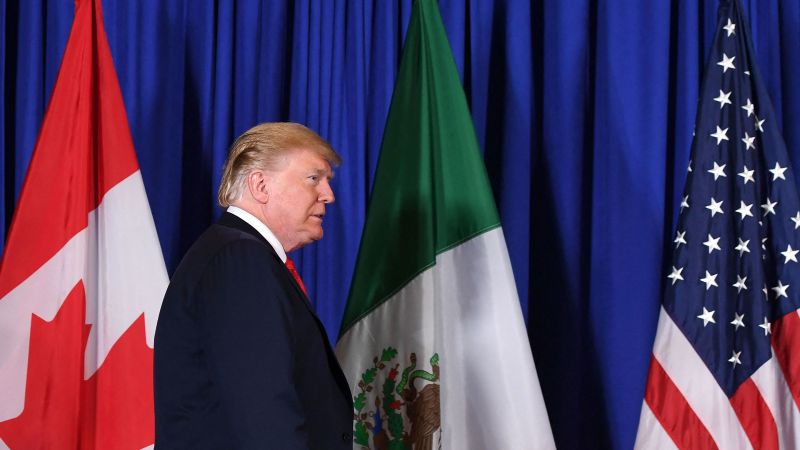Former President Donald Trump has expressed a desire to renegotiate the USMCA trade agreement with Mexico and Canada, which replaced NAFTA in January 2020. Despite initial praise for the USMCA as being a modern and balanced trade agreement, Trump now believes that it can be improved. He plans to invoke the six-year renegotiation provision of the USMCA to make the deal better, particularly with a focus on benefiting the car industry. Vice President Kamala Harris, who was a senator at the time and voted against the USMCA, has also expressed a willingness to use the review process to make necessary changes.
The USMCA trade agreement included updates to the 25-year-old NAFTA, with notable changes such as a requirement for 75% of a vehicle’s parts to be made in one of the three countries (up from the previous 62.5% rule) to avoid tariffs when crossing borders. Additionally, there was a provision for more vehicle parts to be made by workers earning at least $16 an hour, as well as new benefits for the technology sector through a chapter on digital trade that was not present in NAFTA. The USMCA also incorporated strong labor rules and environmental protections to ensure fair practices and sustainability.
Trump’s plan to renegotiate the USMCA has raised questions about the potential impact on the existing trade deal that he had endorsed. He has reassured that his intention is to make the agreement a much better deal without undermining the foundations of the original USMCA. With a focus on benefiting the car industry, Trump aims to leverage the renegotiation provision to address issues that were not adequately covered in the initial agreement. The USMCA review process provides an opportunity for both Trump and Harris to work towards making the trade agreement more effective and protective of American workers and industries.
Harris, who had voted against the USMCA as a senator, has been critical of the agreement’s shortcomings, particularly in relation to the protection of the country and its workers. She has emphasized the need for stronger provisions to address environmental concerns, such as climate change. The USMCA review process serves as a mechanism for addressing these concerns and bringing about necessary changes to ensure that the trade agreement meets the current and future needs of all signatory countries. Both Trump and Harris are looking to take advantage of this opportunity to strengthen the USMCA and deliver more favorable outcomes for their constituents.
The USMCA trade agreement was hailed as a significant milestone in modernizing and balancing trade relations between the United States, Mexico, and Canada. Its focus on increasing regional content requirements for vehicles, setting higher labor standards, and promoting digital trade reflected a comprehensive approach to addressing the challenges and opportunities of the evolving global economy. The renegotiation process initiated by Trump and supported by Harris presents an opportunity to build upon the existing framework and make the necessary adjustments to further enhance the benefits of the USMCA for all parties involved. By leveraging the review provision, key issues can be addressed and solutions can be implemented to create a stronger and more resilient trade agreement that fosters economic growth and cooperation among the three countries.


